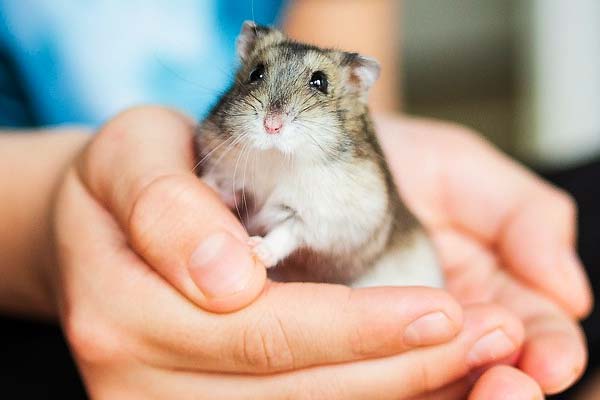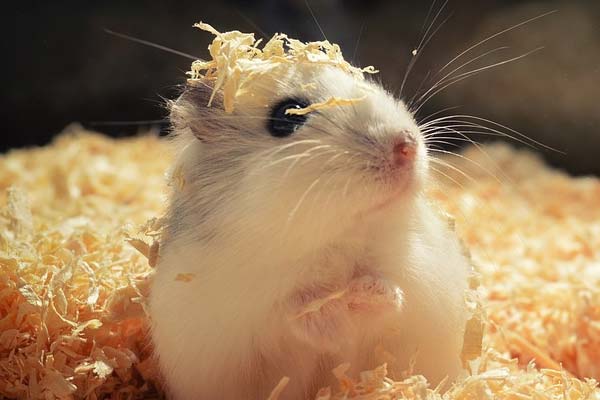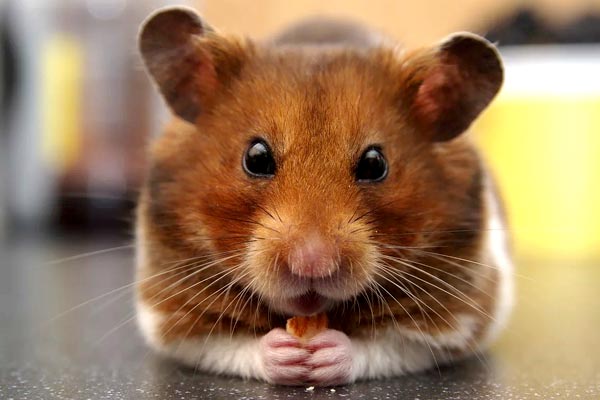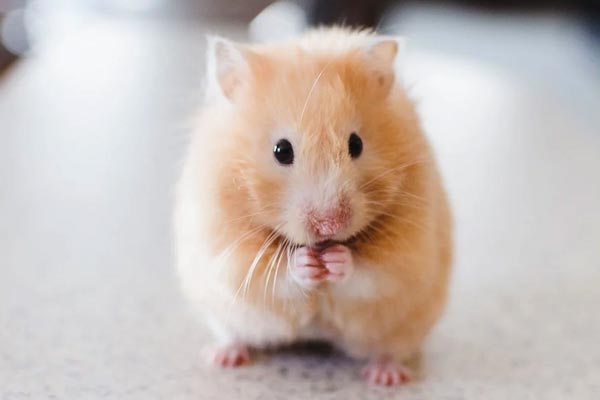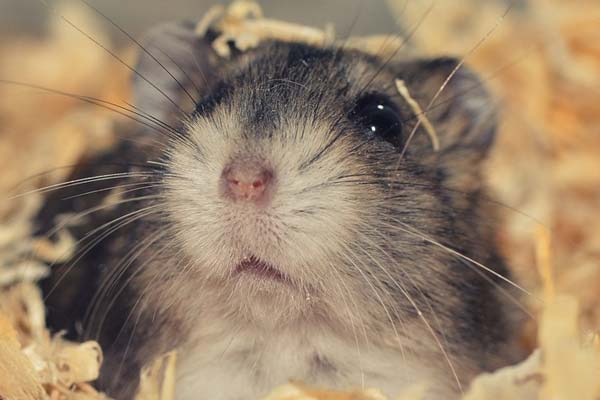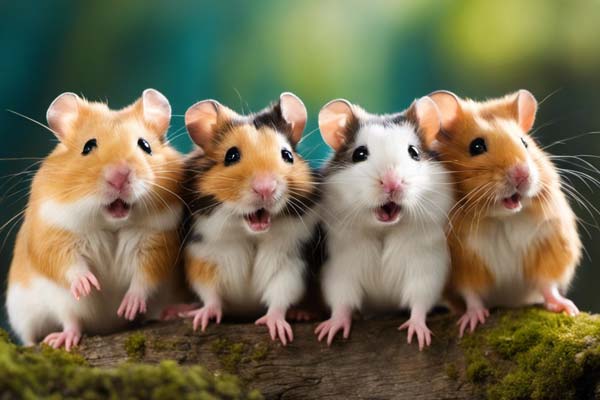Can Hamsters Eat Grass? A Comprehensive Guide to Feeding Your Furry Friend
Hamsters are popular pets that are loved by many for their cute and cuddly nature. As with any pet, owners must understand the dietary needs of their hamsters. One question that often arises is whether or not hamsters can eat grass.
The answer is yes, hamsters can eat grass, but with some critical considerations. While grass can provide some nutritional benefits for hamsters, it should only be in moderation. Too much grass can lead to digestive issues and even make your hamster sick.
Ensuring the grass is free from harmful chemicals or pesticides is vital, as these can harm your pet.
Can Hamsters Eat Grass?
Hamsters are known to be omnivorous, meaning they can eat both plant and animal-based foods. The grass is typical for many animals, including cows, horses, rabbits, and guinea pigs. But can hamsters eat grass?
Feasibility and Safety of Grass Consumption
The answer is yes, hamsters can eat grass, but it should be in moderation. Grass is a healthy hamster food because it has lots of fiber, vitamins, and minerals.
Adding grass to their diet is a good idea to keep them happy and healthy. However, it is essential to note that a hamster’s digestive system is not designed to digest large amounts of grass like other animals.
Discussion on Whether Hamsters Can Eat Grass
Some hamsters may enjoy nibbling on fresh grass, while others may not show any interest. Observing your hamster’s behavior and appetite is crucial when introducing new foods to their diet. If your hamster shows signs of discomfort or digestive issues after eating grass, it is best to avoid giving it to them in the future.
Examination of the Safety Considerations
When offering grass to your hamster, it’s vital to prioritize cleanliness and avoid any potential harm from chemicals like pesticides. It’s best to steer clear of grass from the garden or yard, as it might have been treated with harmful substances.
Instead, choose grass specifically grown for pets or consider purchasing organic grass from a trusted source. This way, you can ensure the safety of your furry friend’s diet.
Nutritional Value and Risks of Grass for Hamsters
Hamsters have an omnivorous diet, meaning they can consume plants and animals as part of their food intake. While hamsters can eat grass, it should only be in moderation and under strict conditions to prevent potential health issues.
In this section, we will discuss the nutritional benefits of grass for hamsters, the risks and precautions of grass consumption, and potential risks or hazards.
Nutritional Benefits of Grass for Hamsters
Grass can provide fiber and some vitamins for hamsters. Fiber is the biggest contender in the grass nutrient list. It helps keep the digestive system healthy and can prevent constipation. Grass also contains small amounts of vitamin C, essential for hamsters as they cannot produce it independently.
Analysis of the Nutrients Grass Can Provide
Not all grass is safe for your hamster to eat. Some types can be dangerous and should be avoided. Research and learn about the specific grass before giving it to your hamster.
Risks and Precautions of Grass Consumption
While grass can provide some nutritional benefits, there are also risks associated with its consumption. Hamsters may consume grass that has been treated with pesticides or other chemicals, which can be harmful to their health. Additionally, certain types of grass may cause digestive issues or other health problems.
Precautions to Consider When Feeding Grass
When giving grass to your hamster, it’s important to prioritize their safety. Ensure you take precautions by offering them only untreated grass that hasn’t been treated with pesticides or other chemicals.
This way, you can ensure their well-being and protect them from potential harm. Additionally, limit the amount of grass your hamster consumes and monitor them for any signs of digestive issues or other health problems.
Feeding Guidelines for Hamsters
Hamsters are omnivores and can enjoy a diverse diet, including grass. However, it’s essential to be mindful of the quantity and type of grass they consume to prevent potential health issues.
Quantity and Frequency of Grass Consumption
Hamsters can safely consume grass in small amounts. They are recommended to be given three to four blades of grass at a time and only under supervision. Too much grass can lead to digestive issues, such as vomiting and diarrhea.
Determining the appropriate amount and frequency of grass consumption for a hamster depends on various factors, such as age, weight, and overall health. It is best to consult a veterinarian to determine the appropriate amount of grass for your hamster.
Suitable Grass Types for Hamsters
Not all types of grass are suitable for hamsters. Selecting safe grass varieties free from pesticides and other harmful chemicals is essential. Timothy, Bermuda, and oat grass are safe options for hamsters to consume.
Tips for Selecting Safe Grass Varieties
When selecting grass for your hamster, it is vital to consider the following tips:
- Choose grass that is free from pesticides and other harmful chemicals.
- Avoid grass that has been treated with fertilizers or other chemicals.
- Only select grass from areas that are free from toxins and pollutants.
- Rinse the grass thoroughly before giving it to your hamster.
Alternative Foods for Hamsters
While grass can be a healthy addition to a hamster’s diet, it should not be their primary food source. Hamsters require a balanced diet that includes a variety of foods, such as pellets, fruits, and vegetables.
Some healthy foods that can be added to a hamster’s diet include:
- Carrots
- Apples
- Broccoli
- Spinach
- Timothy Hay
- Mealworms
Can Hamsters Have Dried Grass?
Hamsters can have dried grass, but it should be fed in moderation. Dried grass can be a good source of fiber for hamsters, but it should not be their primary source of nutrition.
When feeding dried grass to hamsters, it is vital to ensure it is clean and free from harmful chemicals or pesticides. Hamsters have a sensitive digestive system; contaminated dried grass can make them sick.
It is also important to note that dried grass should be fed in manageable quantities. Too much-dried grass can lead to digestive problems, such as diarrhea and vomiting.
In addition to dried grass, hamsters should have a balanced diet, fresh fruits and vegetables, and good quality hamster food.
Frequently Asked Questions
Many hamster owners are curious whether their furry friend can eat grass. Here are some frequently asked questions related to hamsters and grass:
Can hamsters eat all types of grass?
No, not all types of grass are safe for hamsters to eat. Some types of grass can be harmful and even toxic to them. Ensuring the grass is free from pesticides, fertilizers, and other chemicals that could harm your hamster is essential. Additionally, some grasses may be too tough or too fibrous for hamsters to digest correctly.
How much grass can hamsters eat?
Hamsters should only eat small amounts of grass as a treat. Overfeeding grass can cause digestive problems and other health issues. A few blades of grass once or twice a week should be enough for your hamster.
Can grass be a substitute for hamster food?
No, grass should not be a substitute for hamster food. While grass can provide some nutritional value, it does not contain all the essential nutrients a hamster needs to stay healthy. Hamsters require a balanced diet that includes a variety of foods, including pellets, fresh fruits and vegetables, and occasional treats like grass.
Can hamsters eat grass from outside?
It is not advisable to feed your hamster grass from the outside. Outside grass may contain harmful chemicals, pesticides, bacteria, and parasites that can harm your hamster’s health. Providing safe and clean grass options specifically intended for hamster consumption is better.
What are the benefits of feeding hamsters grass?
Grass can provide some nutritional value to hamsters, including fiber and antioxidants. It can also help keep their teeth healthy by providing a natural chewing exercise. However, it’s important to remember that grass should only be fed to hamsters in small amounts as a treat and should not be a substitute for their regular diet.
Conclusion
In conclusion, hamsters can eat grass, but it should only be in moderation and under strict conditions to prevent potential health issues. Grass can provide fiber and some vitamins for hamsters, but it should not be their primary food source. A balanced diet is essential for a hamster’s overall health and well-being.
Hamsters are omnivores and require protein, carbohydrates, and fat. Feeding them too much grass can upset their digestive system and lead to health problems. It is crucial to ensure that hamsters can access various foods, including fresh fruits and vegetables like apples and greens.
It is also crucial to understand the digestive system of hamsters when feeding them. Hamsters have a complex digestive system that requires a balanced diet. It is essential to avoid overfeeding them and to provide them with foods that are easy to digest.

